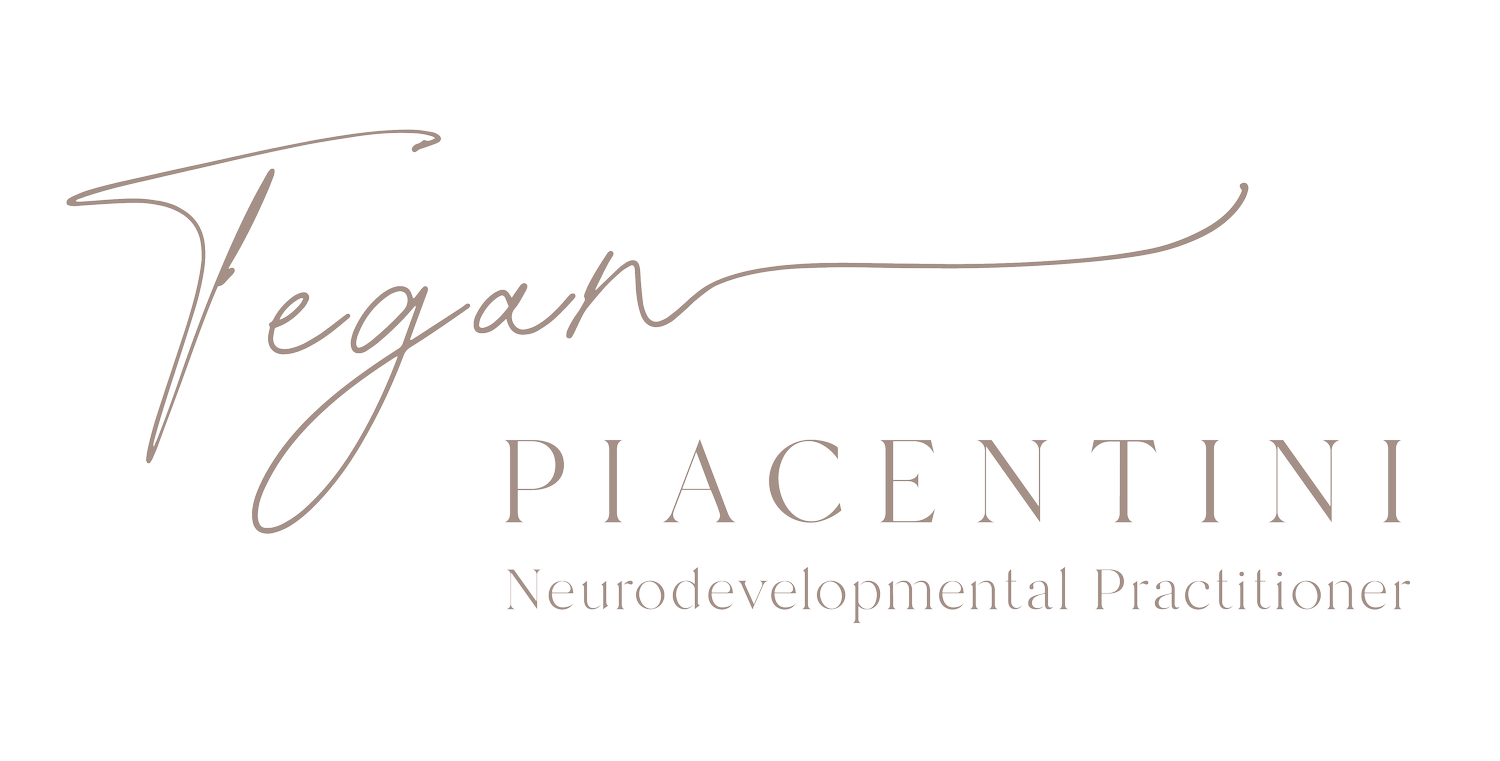Tegan Piacentini - INPP™ (Institute for Neuro-Physiological Psychology) Neurodevelopmental Practitioner.
Specialising in a root-cause approach to neurodevelopmental delays and symptoms for children and adults.
-
A teacher and school Principal with over 20 years experience in education supporting children with complex behaviours and learning difficulties.
-
Bachelor of Education
INPP Practitioner
Safe and Sound Protocol Trained
What does Neuro-Motor and Sensory Immaturity look like?
As a parent:
You may have noticed your child has difficulty performing tasks that should be quite easy, even though he/she may be quite bright and intelligent. Their teacher may suggest that: “They could do better.” “They are not meeting their potential.” He/she may be fidgeting regularly, day dreaming, not paying attention or listening. They may be described as: “easily distracted”, “Not trying hard enough”, “Can’t sit still.” They may be anxious and reluctant to try anything new.
As an adult:
You may have learned to cope and develop strategies to avoid situations requiring reading and writing. You may have developed other skills to counteract difficulties with inattention, co-ordination and balance. But, at the end of the day, you feel exhausted because you’ve been working so hard at an unconscious level to ‘stay in control’.
What is an INPP Practitioner?
An INPP (Institute for Neuro-Physiological Psychology) practitioner is a professional trained in the INPP method, which focuses on addressing neuro-developmental delays that can affect learning, behaviour, and motor skills.
Key Aspects of an INPP Practitioner
-
INPP practitioners undergo extensive training to understand the neurodevelopmental processes and how to assess and address neurophysiological immaturities. This training includes understanding primitive reflexes, postural reflexes, and their impact on learning and behaviour.
-
They use specific diagnostic tools and assessments to identify retained primitive reflexes and other neurodevelopmental issues. These assessments help in creating a tailored intervention plan for each individual.
-
INPP practitioners develop personalised movement-based programs designed to integrate primitive reflexes and improve neurodevelopmental function. These programs typically involve a series of specific physical exercises performed over several months.
-
The INPP method takes a holistic approach to neurodevelopmental health, considering the interconnections between physical, cognitive, and emotional development.
-
INPP practitioners often work closely with other professionals, such as teachers, psychologists, occupational therapists, and parents, to provide comprehensive support and ensure the best outcomes for their clients.
-
Common areas of focus for INPP practitioners include addressing learning difficulties, behavioural issues, motor coordination problems, and other developmental challenges.
Meet the Team
Get Started.
Get Started.
Find out if the INPP Program is right for you.
↓






